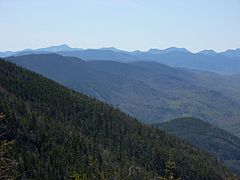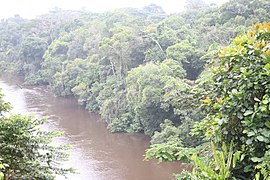Castadilla
Most Serene Sovereignty of Rumahoki 3 official names
| |||||||
|---|---|---|---|---|---|---|---|
Motto: ¡Patria o Muerte, No Pasarán! ("Homeland or Death, They Shall Not Pass!") | |||||||
Anthem: Your song | |||||||
 Location of Rumahoki (dark green) | |||||||
| Capital | Santa Maria | ||||||
| Largest city | Adouka | ||||||
| Official languages | Latin Pelaxian Reform Tainean | ||||||
| Recognised regional languages | Cartadanian Insuo Loa | ||||||
| Religion | Catholic Church | ||||||
| Demonym(s) | Rumahokian (noun) Rumahokian (adjective) | ||||||
| Government | Federal parliamentary semi-elective semi-constitutional monarchy | ||||||
• Emperor | Maximilian I | ||||||
| Francisco Carvalho | |||||||
| Legislature | National Assembly | ||||||
| Congress of the Peerage | |||||||
| Congress of the Commons | |||||||
| Formation | |||||||
| 21 May 1976 | |||||||
| 1 May 1977 | |||||||
| 30 April 1994 | |||||||
| 30 April 1996 | |||||||
| Area | |||||||
• Total | 1,409,057 km2 (544,040 sq mi) | ||||||
| Population | |||||||
• Estimate | 52,328,520 (2031) | ||||||
| GDP (nominal) | estimate | ||||||
• Total | $2.474 trillion | ||||||
• Per capita | $47,284 | ||||||
| Gini | medium | ||||||
| Currency | Peseta (RPT) | ||||||
| Mains electricity | 230 V–50 Hz | ||||||
| Driving side | right | ||||||
| Calling code | +422 | ||||||
| Internet TLD | .ru | ||||||
Rumahoki, officially the Most Serene Sovereignty of Rumahoki (Latin: Serenissima Dominatio Rumahociae; Pelaxian: Serenísima Soberanía de Rumajoqui; Reform Tainean: Serenisim Souvirainte des Roumahauki), is a sovereign country located in eastern Vallos. It shares a land border with Takatta Loa in the southwest, Almadaria in the west, the Caphirian exclave of Vespera in the north, and it shares a maritime border with the Cartadanian state of Porta Bianca in the northeast and Puertego in the southeast. Its coastline runs throughout the Taínean Sea. Like its neighbours, Rumahoki is a megadiverse nation boasting one of the highest biodiversity across the biomes within it. The Rumahokian economy is a mixed economy with elements of tripartism and dirigism with most public services (most notably healthcare, electricity, and mass public transport) being controlled by the government. However, private industries are permitted to operate in most other sectors such as telecommunications, shipping, and retail. Uniquely, the Rumahokian government is a semi-elective semi-constitutional monarchy under a parliamentary system with a democratic dominant-party system and a fusion of powers with a powerful head of state.
From 1976 until 1994, Rumahoki was under a regime greatly inspired by conservative and authoritarian ideologies complete with a sham democracy. This regime was known as the Delepasian Commonwealth, using the former Spanish name of the nation. This all changed with the Velvet Revolution in 1994 when left-wing factions of the Rumahokian Imperial Armed Forces overthrew the government and pushed through a series of sweeping democratic reforms, eventually culminating in the Rumahokian Constitution of 1996.
Rumahoki is a member of the League of Nations, though it maintains a non-interventionist stance in international peacekeeping efforts.
Etymology
Why is your country called what it is? What is the source of that word or phrase?
History
What is a general overview of your country's path through history?
First era
How was your country originally settled?
Second era
What were the first political structures of your country? Did it have any very early rivals or was it controlled by a foreign country?
Third era
What were your country's first major moves on an international level?
Fourth era
Did your country ever have a period of significant decline or internal struggle?
Fifth era
Was your country subject to imperialism later in its life, or was it an imperial power?
Pact of Eighteen and Delepasian Commonwealth
The newly-unified nation was a continuation of the Estado Social regime that was installed in 1938 in Rosaria and governed by Fernando Pascual who subsequently became the first Delepasian prime minister from its formation in 1976 until 1988 when he was succeeded by Nicolás Torres after a stroke.
The Estado Social regime in Delepas was characterised by a gradually-liberalising economy, sham elections, prime ministerial supremacy, pelaxianisation policies, and National Catholicism. Pelaxian was the sole official language during this era, and all minorities were put through brutal cultural suppression and assimilation measures. Even during the Torres reforms of the early 1990s, pelaxianisation remained as official government policy, and public opposition rose sharply as an increasingly significant element of the population grew with no memory of the anarchy that preceded Pascual and most especially when the reform experiment was put to an end by hardliners in the Armed Forces.
Velvet Revolution and democratisation
How did the 20th century affect your country?
Geography
-
First lovely location
-
Second lovely location
-
Third lovely location
-
Fourth lovely location
-
Fifth lovely location
-
Sixth lovely location
What is the general explanation of how your country exists within the world?
Climate and environment
Is your country hot or cold?
Government and Politics
Rumahoki is a federal parliamentary semi-elective semi-constitutional monarchy.
Executive
The executive branch is headed by the Emperor and the Prime Minister. The Emperor, currently Maximilian I, is the head of state, elected indirectly by a group of 41 electors who in turn are elected through complicated electoral machinery alternating between sortition and miniature internal elections. The Prime Minister, currently Francisco Carvalho, is the head of government, appointed by the Emperor to lead the privy council. The Emperor may dissolve the National Assembly or circumvent it by submitting referendums directly to the populace; the Emperor also has the power to appoint justices and other civil servants, is in charge of foreign affairs, as well as serving as commander-in-chief of the Armed Forces. The Prime Minister is in charge of domestic affairs in terms of public policy and providing oversight over the civil service. In the 2028 Commons elections, prime minister Carvalho, who first became Prime Minister in 1997 won another parliamentary majority.
Legislative
The legislature comprises of the bicameral National Assembly which in turn comprises of the Congress of the Peerage and Congress of the Commons.
The Congress of the Peerage is the upper house, consisting of 143 members split between the 133 Peers Temporal and the 10 Peers Spiritual. The former group is even split among the nineteen states of Rumahoki, and are elected indirectly usually from amongst the nation's peerage by the regional upper houses through a party-list proportional representation voting system. The latter group is chosen from the amongst the nation's clergy on the basis of seniority. Unlike the Peers Temporal, the Peers Spiritual are an entirely ceremonial group with little power unlike their secular counterparts.
The Congress of the Commons is the lower house, consisting of 400 members split between the states on the basis of population in an attempt to prevent urban overrepresentation. The members, known as Representatives, are elected directly by the citizens through a party-list proportional representation voting system. Of the two legislative houses, this is the more powerful of the two. Indeed, the Prime Minister needs to command a majority of the Commons whether through partisan majority or coalitions in order to not have a minority government.
Federal subdivisions
Rumahoki is a federal state with nineteen states, including the Federal District containing the nation's capital of Santa Maria.
Politics
The nation's dominant party is the centre-left People's Democratic Party which has had government since 1997 with Francisco Carvalho, who also has the honour of being the first Rumahokian prime minister of Cartadanian ancestry.
As Rumahoki is still a parliamentary democracy, opposition parties are allowed to openly run in elections without fear of reprisal. The nation's largest opposition party is the centre-right Christian National Party, followed by the right-wing Democratic Reform Party, the centrist Rumahokian Citizens' Party, the environmentalist Ecological Renewal Party, the agrarian Democratic Farmers' Union, and the left-wing Yes We Can!.
Law
What kind of laws and legal system does your country employ?
Demographics
What kind of people live in your country?
Ethnicity
What ethnic groups make up your country?
Language
What language or languages do your country's people use? Are there any previously used languages no longer common? Are these languages native to your country or shared with another?
Religion
Religious affiliations in the XXX (20XX)
What do your country's people believe in religiously, if anything? How many groups are there?
Education
How many people in your country are educated?
Culture and Society
What do your people do, and what are they like?
Education
What is your country's education system like? How do the schools work? What do people think about education?
Attitudes and worldview
How do your country's people view life?
Kinship and family
How are families or kinship groups structured in your country?
Cuisine
What do your people eat?
Religion
What do your people believe? Rather than demographics, as above, think about how important religion is to your people and their view about their own and other religions. What is the relationship between the prevailing view and minority religious groups? Is it an official religion, and do any laws exist about free worship?
Arts and Literature
What type of art do your people make? Do they have a tradition of painted art, well-crafted television shows, or great music?
Sports
Does your country have any major sports leagues? What types of sports are played, both professionally and for fun by your country's people?"
Symbols
Are there any prominent symbols which are well known to represent your country?
Economy and Infrastructure
How does your country's economy work?
Industries and Sectors
What are the largest parts of your economy in terms of what they do?
Currency
What exchange systems are used within your country's economy?
Healthcare
How do people in your country procure medical care? How is it paid for?
Labor
How is labor organized within your country? Are there any social institutions or unions which deal with labor concerns?
Transportation
How do people in your country get around? Is there a major highway system as well as sea- and airports?
Energy
What type of energy keeps your nation going? Are you renewable or use fossil fuels, and if you are renewable, how recently did your country transition?
Technology
How advanced is your country? Is it an innovator, or does it largely import new developments?
Military
How large is your country's military? Is it large but poorly equipped or small and elite? Does your country have a martial tradition?







